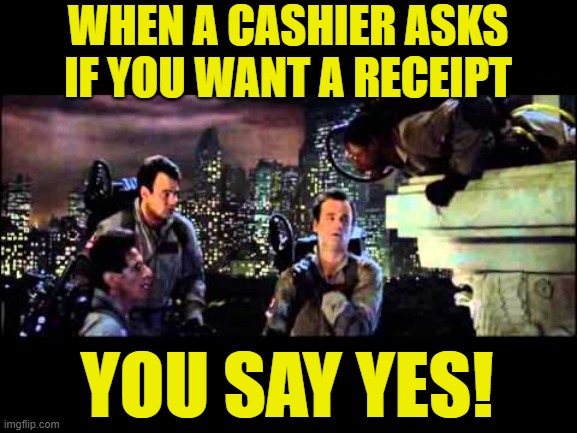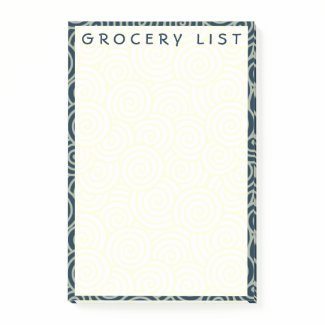Here are a few practical tips we implemented in our home that have helped us live within our monetary means and stop overspending when it comes to grocery shopping.
- Make a list and stick to it:
- If there's no list, there's no reason to go shopping.
- The list is based off the meal plan for the week.
- Don't meal plan while shopping:
- Meal planning happens at home which is what the list is for.
- Meal planning is a plan to use the food that is purchased; if food goes bad and has to be thrown out, it is a waste of money.
- Don't use coupons for unwanted items:
- Coupons are great for wanted items, but if using a coupon means saving money on something I wouldn't buy anyway, then it's not saving money, it's just buying something I don't want.
- Don't buy groceries at gas stations/convenient stores:
- Food items are priced higher; the convenience costs more than going to a grocery store and can add up to lots of wasted money if this is a daily habit.
- Shop for groceries once a week:
- By shopping once a week, that means there is a full week to meal plan for the next week and create a list of what's needed.
- I keep track of what's needed throughout the week on a dry erase board on the refrigerator, and the night before grocery shopping I write it down on paper for my husband and do my best to write the items in order of where they're at in the store for optimal efficiency.
- Our system is to go to the grocery store once a week to get fresh foods and Costco every two weeks on the pay day weekend to get bulk items for stocking up weeks and months in advance (90% of our food comes from Costco), so I have two columns on the dry erase board and write what's needed in the column it goes under.
- By planning ahead with a list, there is no need to run to the store for one or two items throughout the week.
- This may take some practice if people are used to going to a grocery store 3 or 4 times a week, but if living within one's means is a goal, and not wasting money and time by continually going to the store is also a goal, then going to the grocery store once a week is of critical importance to master.
- Make one grocery store the store to go to once a week:
- Running around between two or three grocery stores costs time and money.
- Plan to take time at the preferred grocery store to walk the aisles and find what they carry.
- If going to another store is needed at times, plan to go once a month or less.
- It only takes one able-bodied person to do the shopping:
- Since I don't have a driver's license the system in our home is that I meal plan and write the list, my husband does the shopping once a week and brings in the groceries, and I put the groceries away.
- It's not that my husband loves the shopping experience, but the system does work for our situation; he makes it a point to get in and out as quick as possible. Lollygaggers, which I can be sometimes, are better off at home.
- If I do go on a shopping errand with my husband which happens occasionally, we always have a list; since I don't get out as often as I used to my husband understands I may linger a little longer to take in all the amazing commerce in the store but not necessarily buy anything that's not on the list.
- It's helpful to plan ahead to take time to just look at what's in a grocery store without buying, to find other options and to learn what else is out there.
- Shop online if it's a better deal:
- Going local can sometimes lead to going broke depending on what's available locally and the cost of it.
- Find the manufacturer websites for items used often; many manufacturers offer free shipping on orders over a certain amount which is a good reason to stock up and the cost of the items are often cheaper than in a grocery store.
- Keep all shopping receipts for record keeping:
- I implemented a receipt basket where my husband puts all receipts for bookkeeping.
- Once a week I enter the receipt information into my Excel bookkeeping worksheet to track spending and to keep an inventory list of everything we buy because I want to know where our money goes.
- When I reconcile my records against the monthly bank or credit card statements, I don't want any surprises; the goal is to have every receipt for the month entered in my bookkeeping worksheet beforehand so that what I have matches the statements (the credit card is paid off every month, so we do not carry a balance from month to month or pay interest fees).
- Without knowing where the money goes and what we're buying, we can't make informed decisions on how to change our spending habits; bookkeeping has been integral to improving our spending habits when it comes to grocery shopping.
 |
| Link Here |
I hope these tips help -- happy shopping!
What's the secret to efficient grocery shopping and saving money at the store? Making a list before going to the store and sticking to it! Plan your weekly meals and food needs, then write out the weekly shopping list on this handy notepad to make grocery shopping easier than ever! Customize the notepad with colors and text of your choice at no extra cost with the easy-to-use Zazzle editing tools! Find more helpful designs in the Clean House Guide Zazzle shop @ Zazzle.com/CleanHouseGuide


.jpg)








No comments:
Post a Comment